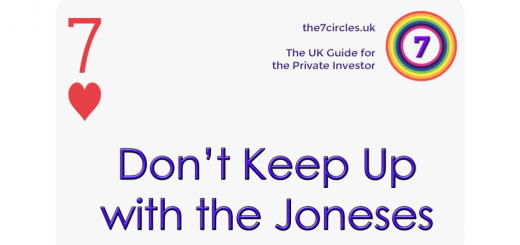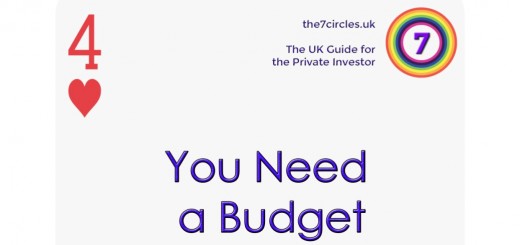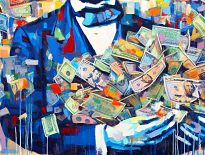The War on Cash

Today’s post is about The War on Cash.
Contents
The War on Cash
I’m not particularly paranoid – I think that the universe is indifferent rather than malevolent – and I don’t subscribe to many conspiracy theories.
But I do believe strongly in individual freedoms and a small state.
- So I am worried about the future of cash.
Because the major governments and central banks are waging a War on Cash (WoC).
- Or more accurately (since cash is inanimate) a “War on People who use Cash”.
Cash – good or bad?
The good thing about cash is that it’s portable, low-tech (which means it always works) and private.
- It’s also costless at the point of use.
Even today, pretty much anyone will accept the local cash in exchange for goods and services. (( London buses are a notable exception in the UK ))
- Countries where the local currency has been devalued through bad government would be the exception, but even then, an international hard substitute (usually the dollar) can fill in.
Of the three main attributes of cash, the one that die-hards like is privacy.
- Maybe you don’t want your credit card company (and potentially the government) to know how many pints you paid for in the pub last night.
Criminal activity
One of the reasons that government claims not to like cash is that it’s popular with criminals.
- The image they like to conjure up is of drug gangs, terrorists and money launderers, but they also mean people like me and you avoiding transaction taxes (like VAT).
It seems odd to focus on cash – criminals use cars and painkillers and lawyers, too, so perhaps we should abolish those.
- Most of us benefit from these things, though, as we do from cash.
India got rid of its largest banknotes (500 and 100 rupees, worth 86% of the money supply) to reduce “corruption”, and Mario Draghi told the European Parliament in 2016:
The 500 euro note is being viewed increasingly as an instrument for illegal activities.
In itself, losing this note would not be a big problem (I’ve never had one, nor a €200 note), but Draghi went on to say:
This move has nothing to do with reducing cash, that is important to keep in mind.
Never believe anything until it has been officially denied.
Here in the UK, it hasn’t even been denied.
- The Bank of England’s Andy Haldane suggested that banning cash might be a good idea back in 2015.
Deflation
The second reason governments don’t like cash is that it limits their ability to use their monetary powers.
The threat has receded today, but a couple of years ago, it looked at though we could be in for a bout of deflation.
- This is a bad thing, since when people expect prices to fall, they see no hurry to buy things today.
To stimulate the economy out of deflation, lower interest rates would be needed.
- But with interest rates already close to zero, they would need to become negative.
This is known (obviously) as a Negative Interest Rate Policy (NIRP) as opposed to the recent Zero Interest Rate Policy (ZIRP – which was in practice a Low Interest Rate Policy, or LIRP) (( These central bankers and economists love their acronyms ))
- Note that once they have been used in deflation, negative interest rates would likely become a standard tool to be used against all future recessions.
Negative interest rates mean that savers get charged to hold cash in their bank accounts.
- The idea is to bully people into spending.
In practice, people take out their cash in order to hoard it at home.
This is known as the Zero Lower Bound (ZLB) problem.
- It’s also known as a run on the banks.
Why positive?
You might at this point wonder why interest rates should be positive in the first place.
There are two reasons:
- time preference
- we want to consume today rather than in the future, and so should be compensated for deferring consumption
- credit risk
- loans (for investment – a good thing) run the risk of default and so interest is also compensation for that
In the 315 years prior to 2009, the Bank of England’s interest rate had never fallen below 2% pa.
- History suggests that recent interest rates are lower than they have been for 5,000 years.
The funny thing is that the central banks think that negative interest rates would stimulate the economy.
- But it’s hard to see what is stimulative about a tax on deposits and a falling money supply. (( Thanks to Prof Kevin Dowd for pointing this out ))
Hoarding
Hoarding cash is not as easy as it sounds (we looked into it) but it does mean that negative interest rates won’t have the impact that the government and the central banks would wish.
- Of course, governments might respond with a “plastic bag surcharge” of say 1% on using cash, alongside a limit on the size of cash transactions (£5K or even as little as £1K).
They could even say that the charge would increase each year, to frighten people into spending.
- But this is something that has never been used to date.
And it would only affect “official ” transactions (eg. in shops), so it runs the risk of helping a black market to flourish.
- But it would pair well with routine use of negative interest rates (the “on switch”) as the “off switch” for the economy when it was overheating.
Capital flight
The other thing that governments would need to do (apart from coordinate between themselves) would be to introduce capital controls.
- If people in the UK saw that using cash would become difficult, they could move their savings offshore and switch to dollars or euros for cash transactions.
So the government would need to limit the amount of money that you could move out of the country.
- It sounds far-fetched, but the UK had capital controls as recently as the 1970s.
Cashless is good?
One area where the War on Cash is going well is the PR battle – the war for hearts and minds.
Cash is no longer King – electronic payments overtook cash transactions in the UK in 2015.
- In Sweden, cash transactions are down to only 20% of the total.
Until recently, it was impractical to use credit or debit cards for small purchases.
- Card company charges meant that most establishments operated a minimum transaction limit.
Contactless has changed all that, and the £30 upper limit introduced in 2015 is good for most of the situations where people would have used cash previously.
- I know that I don’t appreciate “the hassle” of Chip & Pin when I go over the limit.
For millenials (an easier group to wean off cash in any case) phone apps from Apple, Google and FinTech startups are just as popular.
Asking permission
Of course, electronic transactions are cheaper, since notes and coins don’t need to be physically handled.
But this comes at a cost – all of our electronic transactions are recorded.
- Which means that they will be taxed, and can have any charge the government sees fit attached to them.
And ultimately, that the government must approve of the transaction.
- Cashless means “ask for permission”. (( Or as Brett Scott put it – “have your people talk to my people” ))
The War on Cash is really the War on Privacy, and to an extent, the War on Freedom.
This is a fascinating topic, and we’ve only scratched the surface today.
- I’ll be back in a few months with another installment.
Until next time.

